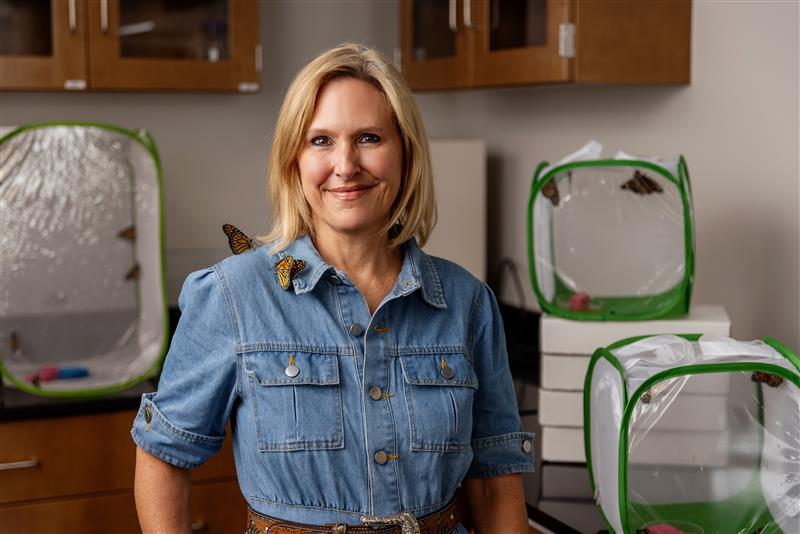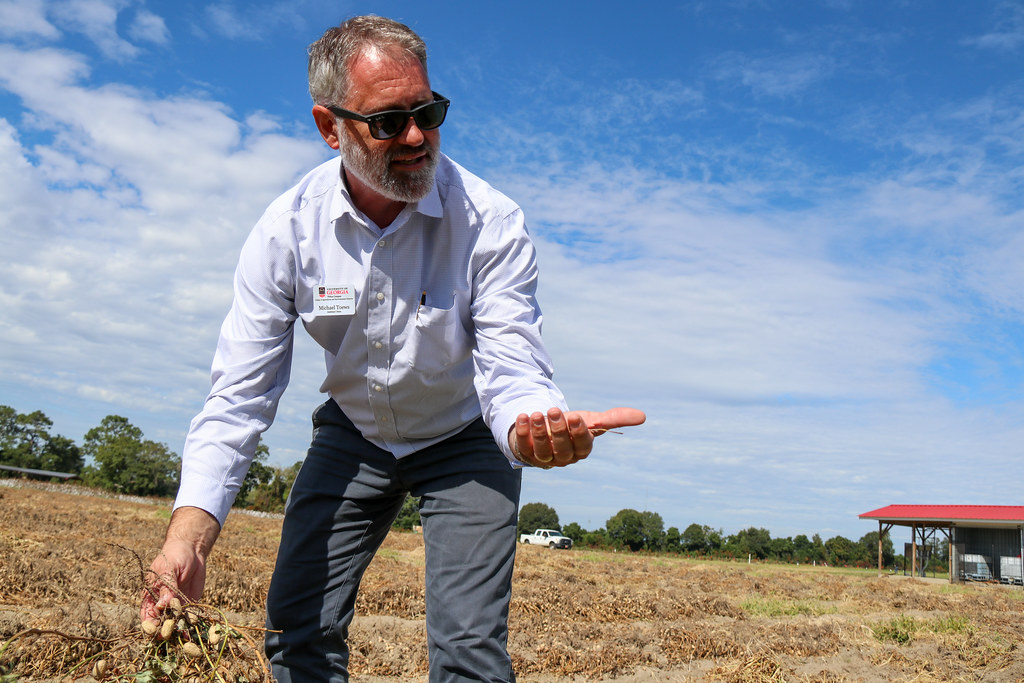Physiologist Cristiane Pilon is the newest member of the University of Georgia Peanut Team. Her expertise in the physiological processes of the peanut plant and management of the plant’s stress levels will equip Georgia farmers with tools to produce an even better crop.
Pilon joined the UGA College of Agricultural and Environmental Sciences March 1 and is based on the UGA Tifton campus. She works with fellow peanut team members to answer the questions they are fielding from Georgia’s peanut producers.
“The peanut team needed a physiologist here to try to help manage one of the state’s high-value row crops. They had general agronomists, breeders, entomologists, all of whom have general areas of expertise for peanuts, but a physiologist was needed to help answer other questions,” Pilon said.
She views drought as one of the main problems that Georgia peanut farmers face, especially because half of the state’s peanut crop is produced in nonirrigated fields. Last year’s drought, which spanned a couple of months in late summer and early fall, led to low yields for much of Georgia’s peanut crop.
Drought conditions can make aflatoxin problems worse. “When that happens, one big problem leads to another,” Pilon said.
The carcinogen aflatoxin becomes more prevalent when a peanut plant undergoes drought and heat stress. The presence of aflatoxin, even on just one peanut, can severely downgrade a peanut load.
Pilon will study the physiological and metabolic processes of peanut plants and identify how the plants respond to stress conditions such as drought, high temperatures, insect and disease pressures, especially pressure from the tomato spotted wilt virus.
“There are several physiological processes involved in the growth and development of peanut plants that contribute to productivity,” Pilon said. “Our goal is to understand those processes and how we can manage the crop to improve tolerance to stresses and achieve high productivity. Then, information obtained from our research can be relayed to Georgia’s growers by the peanut team.”
UGA Cooperative Extension peanut agronomist Scott Monfort believes Pilon’s expertise will serve Georgia well.
“Peanuts are a high-value crop in Georgia, so it’s incredibly important to have a row crop physiologist like Cristiane Pilon working at UGA. She is already helping our peanut team members understand and grasp the inner workings of the peanut plant,” Monfort said. “If we know how much drought and extreme temperatures a peanut plant can tolerate, we can convey that information to our growers.”
A native of Brazil, Pilon received her doctorate in cotton physiology from the University of Arkansas.
At UGA, Pilon’s primary focus will be peanuts, a crop that Georgia farmers are expected to dedicate more than 700,000 acres to this year. Pilon said that Georgia producers depend on the collaborative effort of the peanut team to navigate what’s estimated to be a huge crop.
“Whether I’m talking to Extension agents and specialists or other researchers, we’re trying to figure out what our main needs are for the crop, then set up experiments to try to answer those questions so the growers can increase yields,” Pilon said. “That’s why our responsibilities are so important. We are all serving Georgia’s peanut growers.”
Georgia’s peanut industry recorded more than $684.6 million in farm gate value in 2015, according to the UGA Center for Agribusiness and Economic Development.








